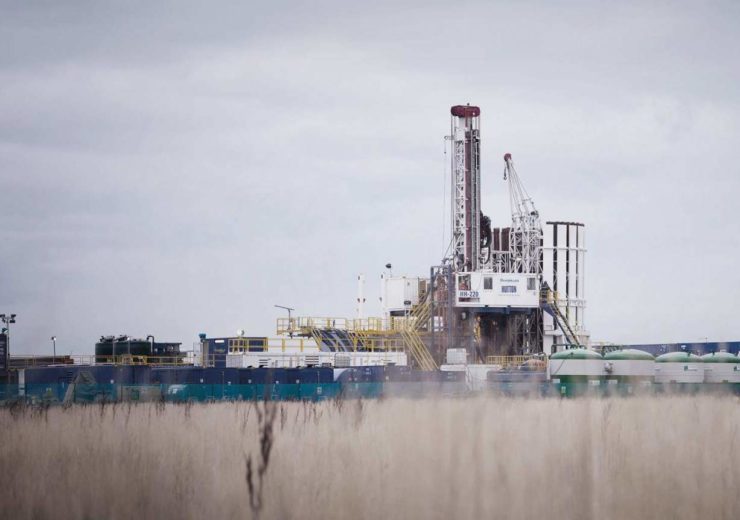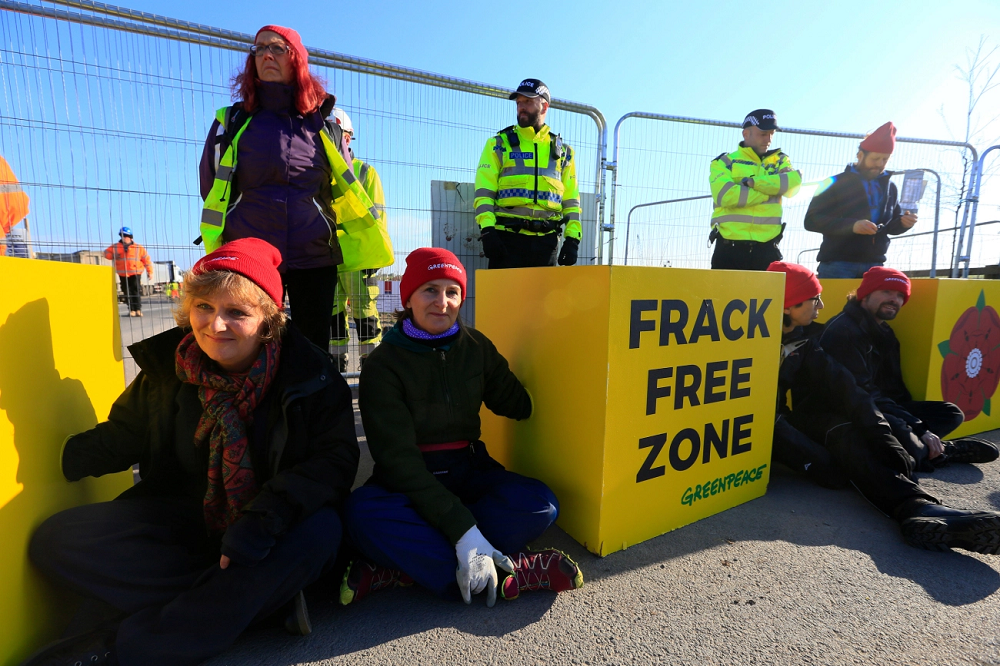A National Audit Office (NAO) review of fracking in England portrays a £32m government policy beset by uncertainty and indecision, as public opposition to the controversial industry mounts

Cuadrilla has operated a controversial fracking site in the UK at Preston New Road since 2017 (Credit: Cuadrilla)
The UK’s National Audit Office (NAO) has painted a picture of uncertainty and a lack of clarity within government over the viability and future direction of shale gas fracking in England.
That is despite an estimated £32.7m having been spent by public bodies on support for the controversial industry since 2011.
Hydraulic fracturing, or fracking as it is more commonly known, has been a facet of government energy security planning for a number of years, but Whitehall’s administrative oversight body says progress in establishing a shale gas industry has been “slower than planned”.
Only three of the 20 wells the Department for Business, Energy and Industrial Strategy (BEIS) had targeted for operation by mid-2020 have so far been fracked, according to the NAO – and strong public opposition to the development of shale gas facilities has further disrupted the situation.
In a report published today, the NAO also raised questions over land ownership of fracking sites and the liability for the decommissioning of shale gas infrastructure.
It cited “unclear and untested” arrangements for designating liability for the clean-up of out-of-use shale gas infrastructure, and said the government “could not explain what would happen should a landowner be unable to meet decommissioning costs”.
Environmental campaigners have received the NAO findings as further indictment of UK fracking policy, while BEIS says it will set out a future approach for the industry in due course.
What does the National Audit Office say about fracking?
The watchdog’s review of shale gas industry development in England outlines various challenges facing the sector’s progression, and depicts a government approach that does not have a full grasp of the situation.
It states: “The Department for Business, Energy and Industrial Strategy does not know how much shale gas can be commercially extracted in the UK.
“It does not expect shale gas production to lead to lower energy prices, but believes it could provide greater energy security and have economic benefits.
“However, it has not analysed the benefits or costs of supporting the shale gas industry because it thinks this would not be meaningful due to the current uncertainty about how much shale gas can be extracted.”
Responding to the report, a BEIS spokesperson said: “The government has always said shale gas exploration can only proceed as long as it is safe and environmentally responsible.
“The Oil and Gas Authority will soon publish a finalised scientific assessment of recent industry data, and we will set out our future approach as soon as we have considered the findings.”
Public cost of shale gas extraction is estimated to exceed £30m
The NAO indicated that shale gas development has already placed financial pressures on local authorities and other public bodies like police forces in England, which have had to oversee protests by campaigners at fracking sites.
It stated: “The full costs of supporting fracking to date are not known by BEIS, but the NAO estimates that at least £32.7m has been spent by public bodies since 2011.
“This includes £13.4m spent by three local police forces on maintaining the security around shale gas sites to date.”
Public opposition to fracking in the UK has been strong, with environmental protesters causing disruption at shale gas facilities around the country – perhaps most notably the Cuadrilla project at Preston New Road, in Lancashire.

The NAO said: “Public support for shale gas development is low and has reduced over time.
“Concern has centred on the risks to the environment and public health from greenhouse gas emissions, groundwater pollution and fracking-induced earthquakes, as well as the adequacy of existing regulations.
“BEIS believes it can meet its climate change objectives while developing shale gas, but it has not yet developed the necessary technology.”
The report added that the government was confident of its ability to manage the health and environmental challenges posed by shale gas extraction, but that the current system of “statutory self-reporting by the operator” presents its own set of risks.
Environmental campaign groups view NAO review as an indictment of UK shale gas policy
Responding to the review, Friends of the Earth environmental campaigner Jamie Peters said: “This is a quietly critical report that doesn’t give the fracking industry any revived sense of hope.
“The NAO has several concerns including the ‘mark-your-own-homework’ approach to regulation and the lack of clarity over who should be responsible for clean-up costs if fracking ever got going.
“Nothing has changed – fracking isn’t wanted, it’s a failed industry, and the future is renewables and energy saving.”
Greenpeace UK chief scientist Doug Parr added: “It’s not easy to admit when you’re wrong, but fracking has been a failure and the government should accept it and move on.
“It says it wants to lower bills for people, but it has already wasted well over £1 per UK household propping up a pointless and divisive pursuit of a fossil fuel that our commitments to decarbonisation mean we can hardly use.
“We’re in a climate emergency, public opposition is sky high and fracking won’t bring us lower energy bills. It’s time to call an end to this farce.”
